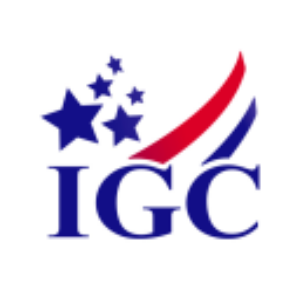IGC Pharma Advances IGC-AD1 Toward Clinical Trials as a Potential anti-Amyloid Plaque Treatment for Alzheimer's Disease
Following the FDA's 2023 approval of two groundbreaking anti-amyloid drugs, Donanemab (Eli Lilly) and Lecanemab (Eisai and Biogen), IGC Pharma is poised to make a significant contribution to this critical field with IGC-AD1. The recognition of amyloid-targeted therapies in slowing Alzheimer's progression and improving cognitive function underscores the growing demand for innovative treatments. While the recent drug approvals have been a significant milestone in enhancing disease treatment, there is still an increasing demand for safe and effective treatments. IGC-AD1, an orally administered medication with a strong safety profile, potentially positions IGC Pharma favorably in this market landscape.
IGC-AD1, with its patent protection, represents a promising advancement in Alzheimer's treatment. The APIs in IGC-AD1 have been shown to target amyloid plaques in Alzheimer's cell lines through two mechanisms: a) inhibiting amyloid protein production and b) preventing its aggregation. Preliminary data from Alzheimer's cell lines suggest that IGC-AD1 may reduce plaque aggregation by approximately
Ram Mukunda, CEO of IGC Pharma, stated, "As we continue our ongoing Phase 2 clinical trials for treating agitation in Alzheimer's dementia with IGC-AD1, we're excited to advance our research into its potential as an anti-amyloid disease-modifying treatment. Evidence from cell lines suggests that IGC-AD1 may reduce amyloid levels while preserving APP production, a critical factor for brain health. With Phase 1 and Phase 2 interim safety and tolerability data, IGC-AD1 stands out as a differentiated drug candidate. The initiation of disease-modifying investigational trials, expected in early 2025, will open a significant market opportunity for IGC Pharma.
"By initiating new trials focused on IGC-AD1's ability to modify amyloid plaque progression, we hope to position IGC Pharma to deliver a breakthrough treatment in Alzheimer's disease, driving substantial value for our shareholders."
About IGC Pharma (dba IGC):
IGC Pharma is an AI-powered, clinical-stage biotechnology company focused on developing innovative treatments for Alzheimer's disease and transforming patient care with fast-acting safe, and effective solutions. Our portfolio includes the TGR family, including TGR-63, which targets amyloid plaques, a hallmark of Alzheimer's. The IGC-C and IGC-M platforms are advancing in preclinical studies, focusing on metabolic disorders, tau proteins, early plaque formation, and multiple disease hallmarks. Our lead therapeutic candidate, IGC-AD1, is a cannabinoid-based treatment currently in a Phase 2 trial for agitation in dementia associated with Alzheimer's (clinicaltrials.gov, NCT05543681). Interim data for IGC-AD1 demonstrated that it has the potential to transform patient care by offering faster-acting and more effective relief compared to traditional medications. Additionally, our AI models are designed to predict potential biomarkers for the early detection of Alzheimer's, optimize clinical trials, and predict receptor affinity, among others. With 28 patent filings and a commitment to innovation, IGC Pharma is dedicated to advancing pharmaceutical treatments and improving the lives of those affected by Alzheimer's and related conditions.
Forward-looking Statements
This press release contains forward-looking statements. These forward-looking statements are based largely on IGC Pharma's expectations and are subject to several risks and uncertainties, certain of which are beyond IGC Pharma's control. Actual results could differ materially from these forward-looking statements as a result of, among other factors, the Company's failure or inability to commercialize one or more of the Company's products or technologies, including the products or formulations described in this release, or failure to obtain regulatory approval for the products or formulations, where required, or government regulations affecting AI or the AI algorithms not working as intended or producing accurate predictions; general economic conditions that are less favorable than expected; the FDA's general position regarding cannabis- and hemp-based products; and other factors, many of which are discussed in IGC Pharma's
View source version on businesswire.com: https://www.businesswire.com/news/home/20240904077482/en/
IMS Investor Relations
Rosalyn Christian / Walter Frank
igc@imsinvestorrelations.com
(203) 972-9200
Source: IGC Pharma, Inc.









